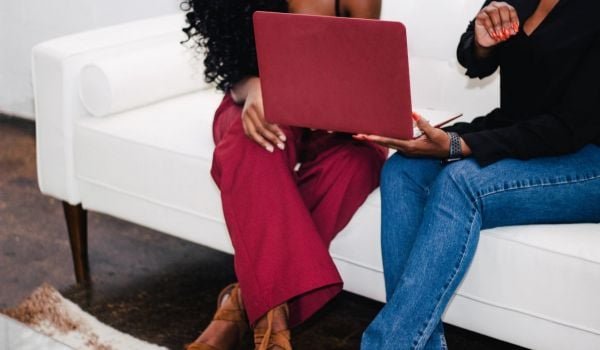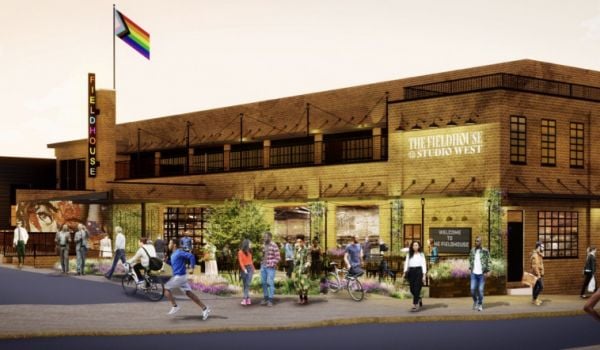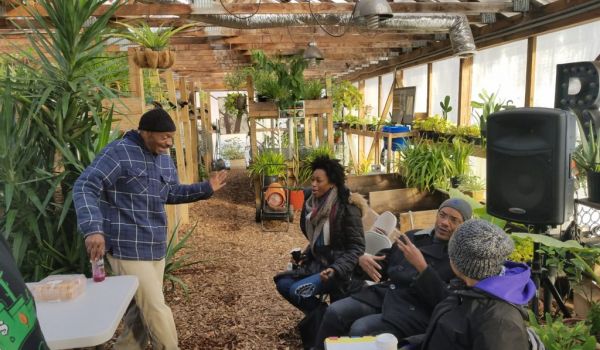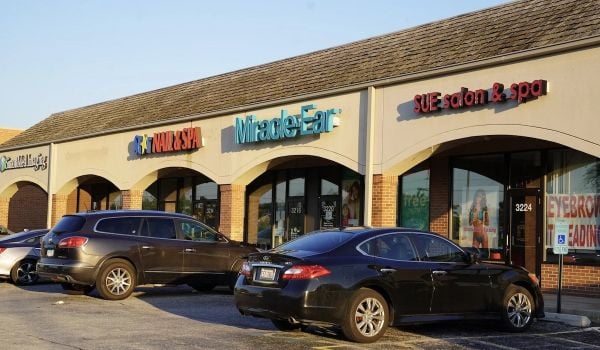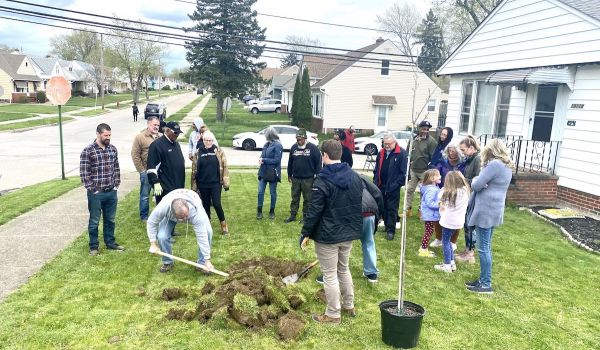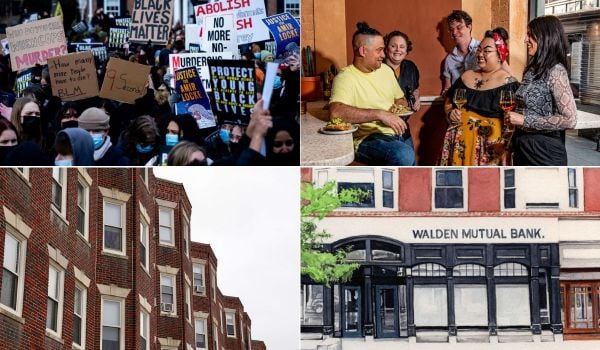Next month would have been the sixth annual Painting in the Park Family Fun day, an event that Angela Miller organizes in Lincoln Park, about one street over from where she attends church in Cleveland’s Tremont neighborhood.
“I have a love for the arts, a respect for the arts, and I want to be able to share that, especially for children who can’t afford it,” Miller says. “And not only children but adults, too, because adults grow up and forget that they’re creative. It’s very important that we never forget that. It brings people together, it bonds families together. All the sacrifice I go through, it makes it worth it, it makes me smile even though some of them don’t know my name because I’m in the background.”
Miller isn’t a painter herself. As a kid, she wanted to be an actor. Her nonprofit, Furaha Productions, started out in the theatrical arts. She wishes she knew growing up that she could have become a producer.
“It turns out that is what my role has been for this work,” Miller says. “We’re all artists, I just paint differently, and my artistry is bringing people together.”
Indeed, like any producer, Miller’s role has been to gather the money, materials and people required to put on some kind of creative production, whether it’s onstage, out in a park, or now via video conference. With the coronavirus pandemic looming, Miller pivoted the upcoming event into a weeklong series of virtual workshops with artists around the country, including the Maryland-based visual artist who inspired Miller to create Painting in the Park, whom she met while Miller was on vacation several years ago. The program will send free creative kits with art materials to each participating family.
In the beginning, Miller paid for the materials out of her own pocket — she works full-time as a social service professional for people living with disabilities. But over the past two years, Miller has turned to online crowdfunding tools to supplement her personal spending to support Painting in the Park and other programs and projects her nonprofit runs. Specifically, she’s turned to ioby, a platform whose model has been to seek out and support projects led by and benefiting residents of neighborhoods that don’t get as much attention from or access to larger funders. The name is technically an acronym, meaning “in our backyard.”
According to ioby CEO and co-founder Erin Barnes, since the COVID-19 pandemic set in, the platform has seen around five times the number of projects than it normally would, with “increasingly complex projects.”
“Part of what we’re seeing is an emotional response of people seeing neighbors in crisis and stepping up to support them and that’s a really beautiful thing,” Barnes says. “But there’s a lot of rules built into our system of helping people, which is kind of sad, but part of why ioby exists is for people to navigate the rules around how to help.”
Some of the rules are formal, codified in laws and regulations governing nonprofits, donors and donations. A group of neighbors wanting to raise money to host a block party can collect donations, but they can’t allow donors to count those donations as tax-deductible unless they officially set up a nonprofit.
For neighbors like those, ioby offers to serve as a fiscal sponsor for tax-deductible donations.
But many rules are unspoken. Like the unspoken rule that people don’t give unless they’re asked. They may not have much to give, especially during a crisis, but there is a dignity conveyed in the act of asking, a dignity denied many people just because of who they are or what they look like or what part of town they’re from.
“It’s all about the power of the invitation to support or to give to people who have not been traditionally asked,” says Dawn Arrington, a Cleveland-based ioby strategist. A “strategist” at ioby is a staff member who provides one-on-one support for each and every fundraising campaign. “You’re asking people who have traditionally been left out of processes to be a part of a process.”
Crowdfunding tools, while theoretically offering to help break out of old racist patterns of donor support based on who has access to spaces where potential donors live or work or share community spaces, has so far ended up mostly replicating the same patterns of racial segregation in other aspects of the economy.
One study used facial recognition software to sort out white creators and African American creators across 138,778 projects on Kickstarter, finding that white creators had about twice the success rate of African American creators.
Another study looked at 7,716 crowdfunding campaigns and found that African American men are significantly less likely than similar white men to receive funding and that prospective supporters rate identical projects as lower in quality when they believe the founder is an African American male.
Ioby has made a point of trying different ways to ensure projects that might need more support to get over systemic bias have access to that support. Beyond its online interface, ioby hires and invests in staff members who have had many of the same life experiences as their target project leaders, like Arrington.
Arrington had her own journey at first of working with ioby to raise money online for a literacy project, with the support of an ioby strategist.
“I didn’t realize then that she was coaching me, just by answering my questions or making me think about other questions I didn’t know had,” Arrington says. “I realized maybe about a year ago in this job that I’m asking people to exercise and use other muscles and push themselves in ways that frankly society doesn’t expect of them.”
Miller, the Cleveland-based artist, started out with zero online crowdfunding experience but has gone on to run campaign after campaign on ioby, becoming more and more adept at online crowdfunding over time. Miller has never tried any other platform, and hasn’t felt any need to.
“It definitely takes practice,” Miller says. “It is a challenge, sometimes people have lost their jobs. You have to be sensitive to people’s needs. They may donate time or give some art supplies.”
Not everyone has a debit card or credit card to give via an online platform. But Miller says she has come into the habit of asking for and receiving donations on the fly, from friends or family at the grocery store or at church or really anywhere somebody asks her what she’s up to and she starts talking about the work. She’ll take $1, $5, $20, set it aside and when she gets a campaign up and running for her next project, she’ll make a donation out of her own pocket from the cash she’s been taking in from folks on the go.
“I call it my community donations or community pot,” Miller says.
With its intentional focus on neighborhoods that lack access or connections to larger funders, the ioby team also frequently brokers partnerships with funders to match donations raised on their platform. Miller’s Cleveland Art Week project, in lieu of Painting in the Park, received matching funds from the Cuyahoga Arts & Culture Match Fund, funded out of a 30-cent tax on every cigarette pack sold in Cuyahoga County, which contains Cleveland.
Since inception eleven years ago, ioby has helped more than 2,400 projects reach their fundraising goals, totaling more than $9 million raised. The average donation size is $50. Projects have come from 260 cities and counting.
As many projects as ioby may support over time, Barnes isn’t under any delusion that crowdfunding through ioby or even other platforms will ever be enough to correct for massive, multi-generational disparities in access to public resources and private capital. But Barnes doesn’t use dollar signs to measure ioby’s contribution to the work of addressing those disparities. It has more to do with fear.
Ioby’s success rate is much higher than other platforms. Kickstarter reports its success rate is currently 38 percent. One study found more than 90 percent of GoFundMe campaigns never reach their goal. Despite the fact that it seeks out project leaders from historically marginalized communities, Ioby’s success rate hovers around 80 percent. Barnes attributes that success to the one-on-one coaching each project gets from ioby’s strategists.
“We’re coaching people around their fears when it comes to fundraising,” Barnes says.
Some of that fear is rational and warranted, like the fears around asking people to contribute during a pandemic that has put many people out of work for the sake of public health. But some of that is just the fear of being told no again, after being told over and over by elected officials and other people in power that ideas that come from historically marginalized communities are not worth anyone’s money.
“A lot of people come to us used to being told no,” Arrington in Cleveland says. “We’re going to work through it because you deserve it, and your community deserves it, deserves to benefit from the project idea you have.”
This article is part of The Bottom Line, a series exploring scalable solutions for problems related to affordability, inclusive economic growth and access to capital. Click here to subscribe to our Bottom Line newsletter.

Oscar is Next City's senior economic justice correspondent. He previously served as Next City’s editor from 2018-2019, and was a Next City Equitable Cities Fellow from 2015-2016. Since 2011, Oscar has covered community development finance, community banking, impact investing, economic development, housing and more for media outlets such as Shelterforce, B Magazine, Impact Alpha and Fast Company.
Follow Oscar .(JavaScript must be enabled to view this email address)



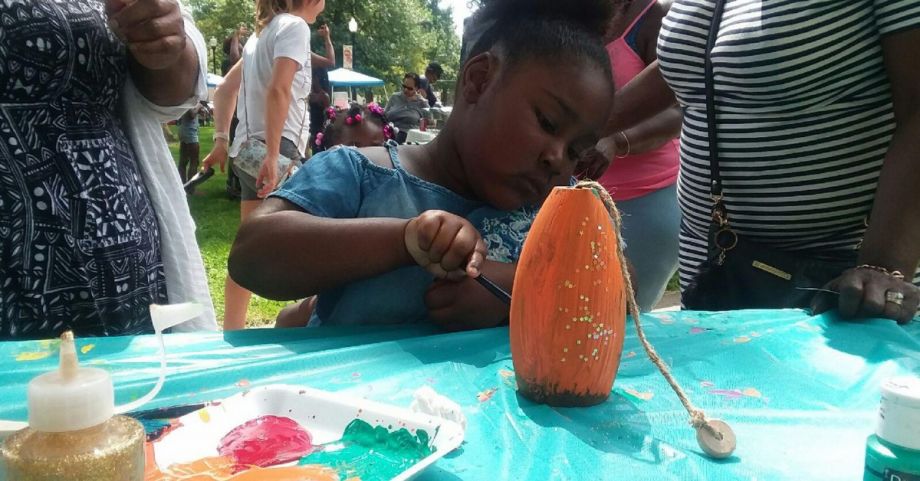

__Sean_Corrigan_from_Cleveland_Sews_(center)__and_Paula_Coggins_from_Oh_Sew_Powerful_(right)_sew_leftover_banners_from_the_NFL_Draft_into_handbags_-_photo_by_Sophie_Kannberg_600_350_80_s_c1.jpeg)
